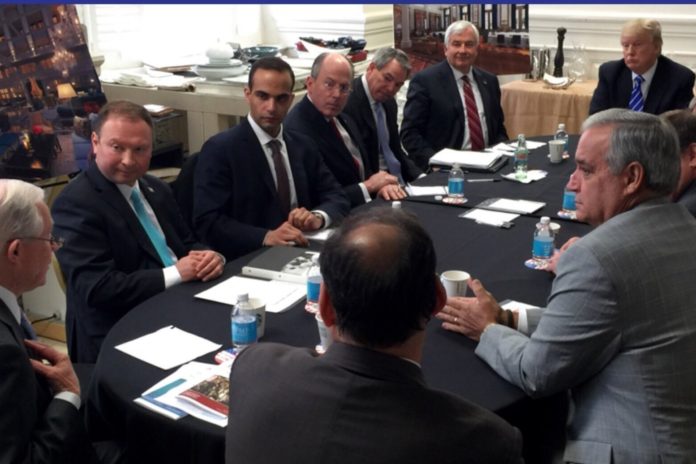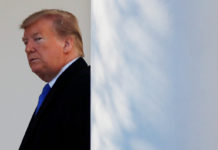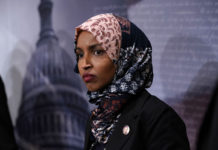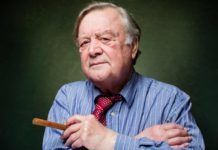
WASHINGTON — The White House official had a startling assertion: He thought he had received an email in the first half of 2016 alerting the Trump campaign that Russia had damaging information about Hillary Clinton.
Testifying behind closed doors on Capitol Hill in late March, the official, John K. Mashburn, said he remembered the email coming from George Papadopoulos, a foreign policy adviser to the campaign who was approached by a Russian agent, sometime before the party conventions — and well before WikiLeaks began publishing messages stolen in hackings from Democrats.
Such an email could have proved explosive, providing evidence that at least one high-ranking Trump campaign official was alerted to Russia’s meddling, raising questions about which advisers knew and undercutting President Trump’s denials of collusion.
But two months after Mr. Mashburn testified, investigators for the Senate Judiciary Committee have not found any such message. The special counsel, Robert S. Mueller III, was also searching for similar emails, according to a person familiar with a request for documents that his investigators sent to the Trump campaign. The campaign, which has examined its emails and other documents, also cannot find the message, and officials do not believe it exists.
Mr. Mashburn offered a tantalizing prospect for Senate Judiciary Committee investigators, who sifted through a tranche of emails from Mr. Papadopoulos. But the search that he inspired demonstrates the difficulty investigators for Congress and Mr. Mueller face nearly two years after the F.B.I. began looking into ties between Mr. Trump’s campaign and Russia. Counterintelligence experts say that uncovering what occurred during an event like the 2016 election could take years, if not decades, to understand.
Witnesses have turned over more than one million documents. Hundreds of individuals have been interviewed and dozens have testified before grand juries. Yet basic questions about the Trump campaign’s relationship with Russia remain unanswered, including the central question of whether officials or Trump associates coordinated with the election interference.
The most specific evidence connecting the Trump campaign to Russia’s interference involves Mr. Papadopoulos. In April 2016, a Maltese professor connected to Russian intelligence, Joseph Mifsud, told him that the Russians had compromising information on Mrs. Clinton in the form of “thousands of emails.” No evidence has come to light indicating that Mr. Papadopoulos told anyone on the campaign.
In the case of Mr. Mashburn’s testimony, investigators will now have to decide what to do with a witness who appears to be telling the truth and remembers a potentially volatile detail that cannot be corroborated.
Mr. Mashburn was nonchalant when he met with committee staff in late March. When investigators gave him an opportunity to change his story, he stuck to his testimony. At one point, he returned from a short break with an ice cream sandwich to snack on as he testified.
Mr. Mashburn’s testimony was described by three people familiar with it, who spoke on the condition of anonymity because they were not authorized to discuss the session publicly. The Judiciary Committee, like other panels on Capitol Hill, is conducting its inquiry mostly in secret and has publicized little of what it has learned.
Lawyers for Mr. Mashburn and Mr. Papadopoulos declined to comment. Michael Glassner, the chief operating officer of the campaign, and Mr. Mashburn did not reply to requests for comment.
A veteran culture warrior and anti-abortion activist, Mr. Mashburn joined the Trump campaign in April 2016 as Mr….










